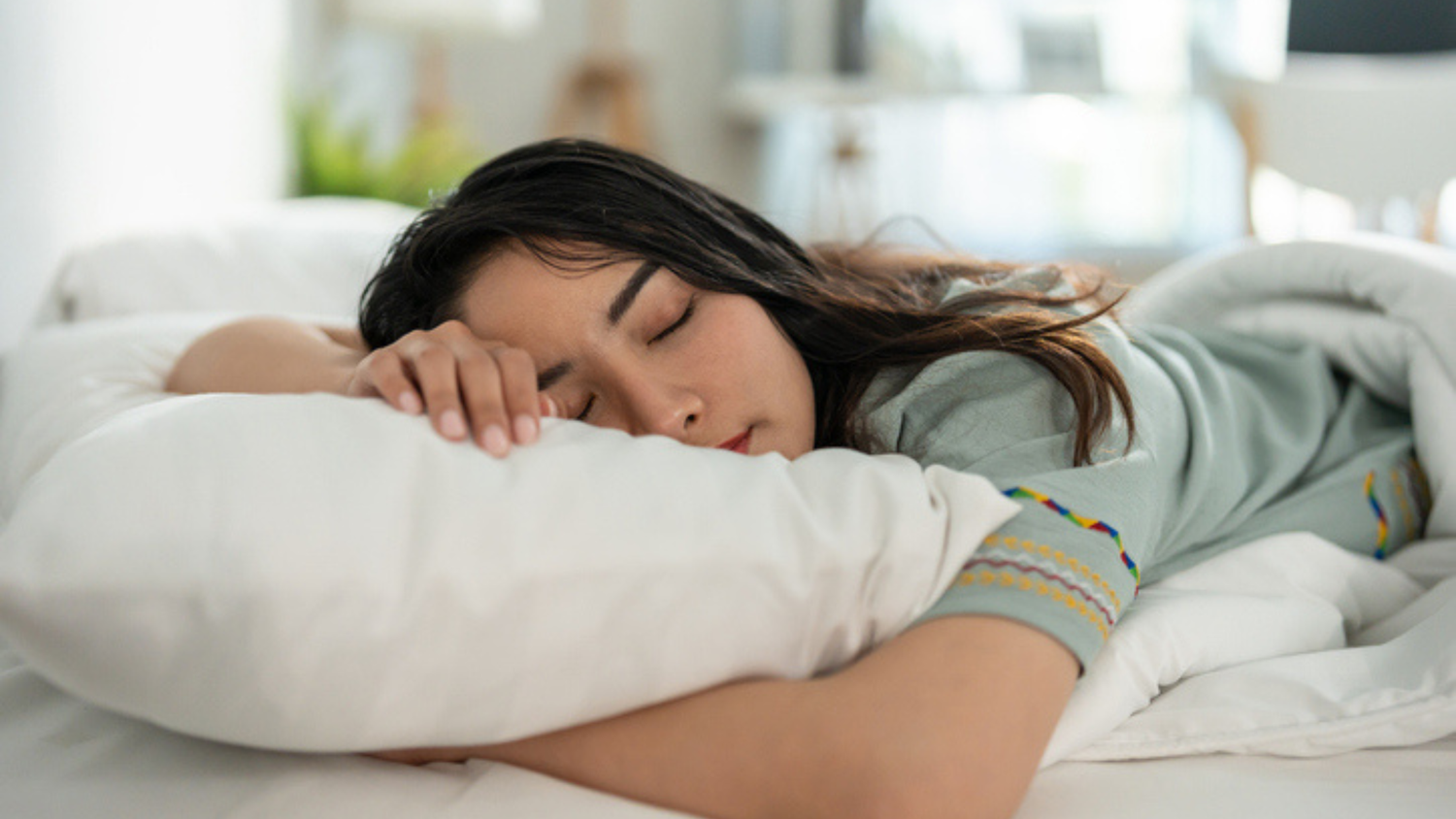Key Takeaways
-
Prioritising consistency in your sleep and wake times supports better restorative sleep and may reduce fatigue and frailty.
-
Enhancing daytime light exposure, engaging in regular movement, creating a supportive sleep environment and moderating stimulating food and drink can significantly improve sleep quality as you age.
-
Getting the right amount of sleep (~7 hours) each night and maintaining rhythm helps preserve physical and cognitive health as you age.
By the time you’re in your 60s, your brain might spend up to 50% less time in deep (slow-wave) sleep compared with your 20s.
Broken or poor sleep isn’t just about being tired the next day. For older adults, changes in sleep architecture, shifts in circadian timing and reduced sleep efficiency all combine to make solid rest more challenging (R).
In this blog, we’ll walk you through five evidence-based strategies to fix broken sleep and support your healthy lifestyle as you move through the years.
1. Keep a regular sleep-wake pattern
Let’s chat about how your internal clock behaves. As we age, the “master clock” in the brain (the suprachiasmatic nucleus) becomes less robust, so the cues that keep us sleeping and waking in rhythm weaken (R).
Aim to go to bed and wake up at about the same times each day, even on weekends. Why does this help? Because irregular sleep-wake patterns can lead to fatigue the next day in older adults — one study found that days with short or long time in bed or low sleep satisfaction were linked with higher fatigue on the following day (R).

Consistency reinforces the circadian rhythm and supports more consolidated sleep. If your bed-time drifts and your wake-time varies, the internal clock can fragment, contributing to broken sleep and those dreaded awakenings.
On weekdays and weekends, stick within an hour of your usual wake-time and bed-time. The more regular, the better your rhythm will stay aligned during our changing daylight hours.
2. Make daylight your ally to support your circadian rhythm
Even when older adults get the same hours of sleep, those with lower daytime light exposure have more fragmented sleep and weaker sleep-wake rhythms (R).
Why? Daylight is the strongest zeitgeber (time-cue) for the circadian system. As our eyes age and we spend more time indoors, the signal weakens. In one controlled trial of older adults with insomnia, a 12-week morning bright-light programme improved sleep onset latency and subjective sleep quality (R).
In the morning, open your curtains, go for a walk or sit outside for 15-30 minutes of natural light. Avoid bright artificial light or screens late at night, which can delay your melatonin and distort your sleep timing. This simple behaviour change can help shift your sleep from broken to more restful.
3. Move your body in the daytime to boost sleep quality
You’ve heard it before: movement benefits sleep. But there’s specific evidence for older adults. A systematic review of experimental studies found that exercise programmes significantly improved sleep outcomes (sleep efficiency, latency, wake after sleep onset) in older populations (R).
Mechanistically, physical activity promotes slower-wave sleep, improves body-temperature regulation and enhances circadian amplitude — all key for good quality rest. Also, when older adults are physically more active, they are less likely to wake frequently or suffer non-restorative sleep.
Try aiming for at least 30 minutes of moderate movement (brisk walk, swim, tai chi) most days, but finish about 2-4 hours before bed (depending on how strenuous) for best effect. Evening gentle stretching is fine, but avoid intense bursts right before bed, which can elevate your body temperature and disrupt sleep.

4. Create a sleep-friendly bedroom environment
Older adults spend less time in the deep, restorative stages of sleep (just one of the age-related changes) (R). Supporting the environment helps maximise what deep sleep we do get.
Here’s what to focus on:
- Temperature: Slightly cool is good — about 18-20 °C is ideal for many.
- Darkness: Aim for minimal light. Older eyes are less sensitive, but even dim light at night can disrupt sleep quality.
- Noise: Reducing interruptions (snoring partner, street noise) prevents wake-after-sleep-onset which especially affects older sleepers.
- Bed and bedding: Ensure the mattress and pillows remain comfortable and supportive. Aches and pains disturb sleep more as we age.
When you combine rhythm, daylight cues, activity and environment, you support the brain’s ability to switch into restorative sleep mechanisms rather than fragmented patterns.
5. Watch food, drink and evening habits
Here’s a less obvious but often overlooked contributor to broken sleep. Although older adults may believe they just “need less sleep”, that’s a myth – they still need around 7 hours (R).
What matters:
- Caffeine and alcohol: Both can fragment sleep. Even afternoon caffeine can influence sleep latency and wake-after-sleep-onset.
- Heavy meals close to bed: A recent study found that eating or drinking too close to bedtime was associated with reduced sleep duration and efficiency (R).
- Evening screen use: Blue-light from screens suppresses melatonin, delaying sleep onset and reducing deep sleep.
So, your “pre-bed ritual” matters: a light snack, a relaxing bath or reading in low light are better than a heavy meal, strong coffee, alcohol or checking social media right up until bedtime.

Why this matters for healthy ageing
Good sleep isn’t just “nice to have”. It’s a pillar of longevity, especially as we age. Poor sleep in older adults has been linked with frailty, reduced physical function, increased fatigue and cognitive decline (R).
In contrast, well-maintained sleep quality supports physical recovery, regulation of metabolism, mood stability and brain health. Each of these contributes to a more active, vibrant lifestyle as you age.
Final thoughts
It’s never too late to improve your sleep. By adopting these evidence-based strategies, you’re giving yourself a foundation for better rest, better mornings and more energetic days.
So tonight, pick a consistent bed-time, open the curtains tomorrow morning, get moving today, and create cosy, calm bedroom vibes. Your body and mind will thank you.
If you found this helpful, read our next blog: Is Exercising Before Bed Bad for You?





